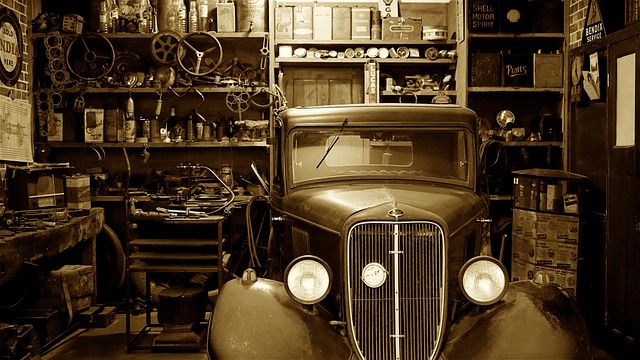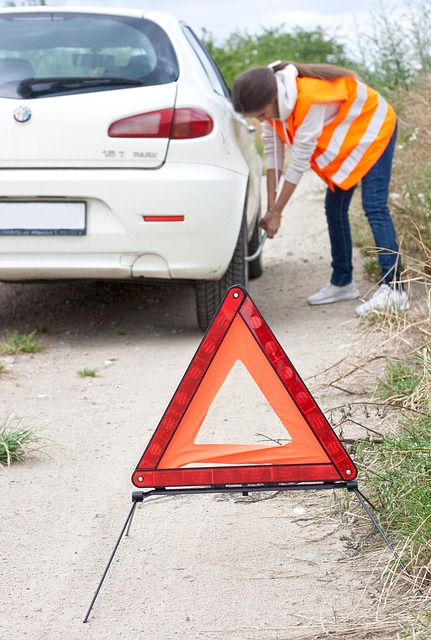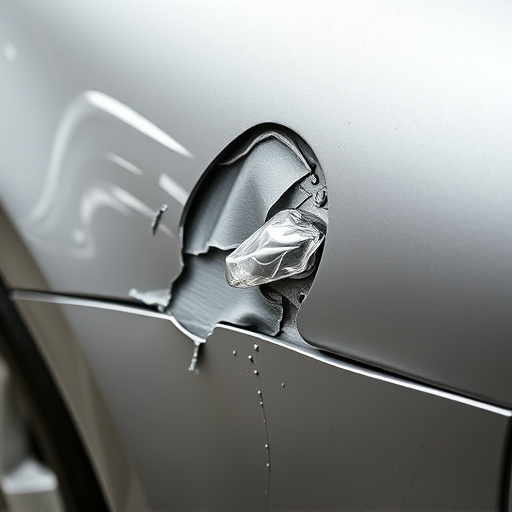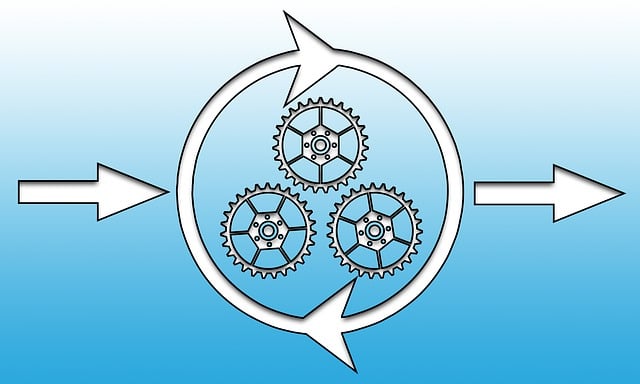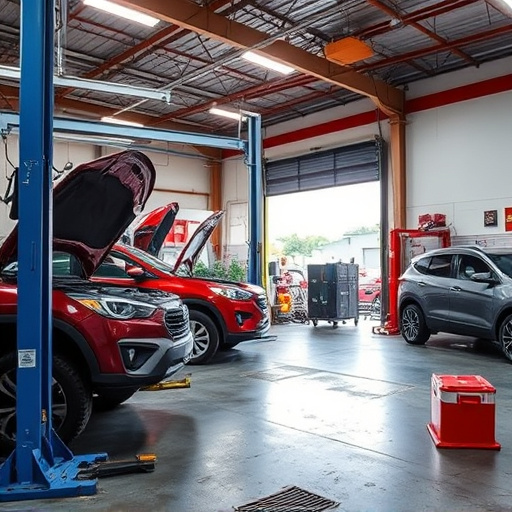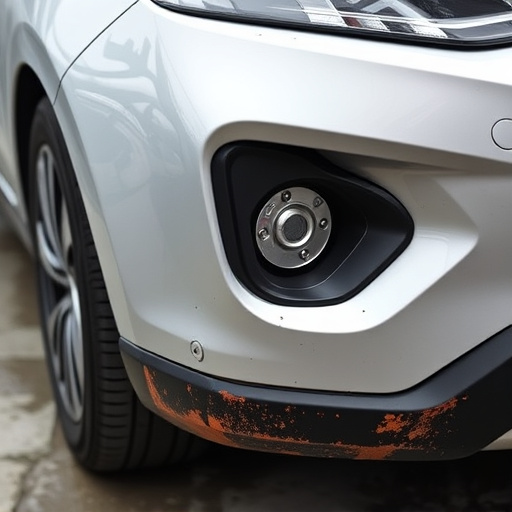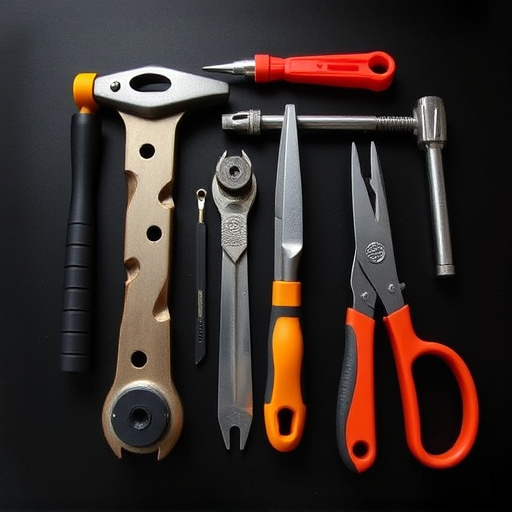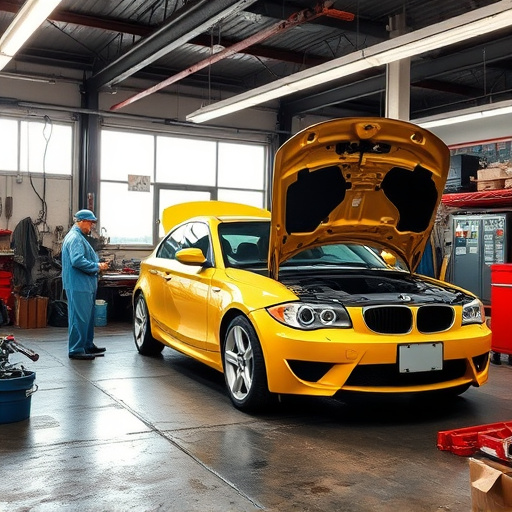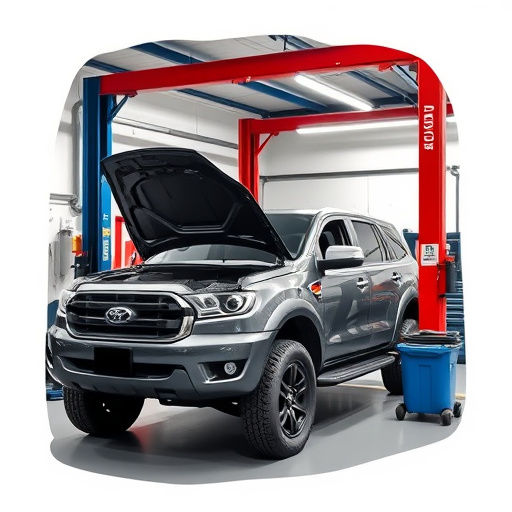A frame repair certification is a specialized skill set for restoring vehicle structural integrity after damage or accidents, focusing on complex systems like chassis and suspension. While general auto repair licensing covers broader skills like engine work and painting, frame repair certification equips technicians with niche yet highly sought-after expertise. This specialization enhances job prospects and earnings potential in the automotive industry due to growing demand for precise frame repairs.
“Navigating the world of automotive repairs? Understanding the distinction between Frame Repair Certification and General Auto Repair Licensing is crucial. This article illuminates the unique aspects of Frame Repair Certification, focusing on its specialized skills, benefits, and impact on career advancement. Conversely, we explore general auto repair licensing requirements, scope, and how they differ. By comparing these certifications, you’ll gain insights to make informed decisions for your professional path in this dynamic industry.”
- Understanding Frame Repair Certification: What It Entails and Its Benefits
- General Auto Repair Licensing: Requirements and Scope of Practice
- Comparing Certifications: Advantages and Considerations for Your Career Path
Understanding Frame Repair Certification: What It Entails and Its Benefits
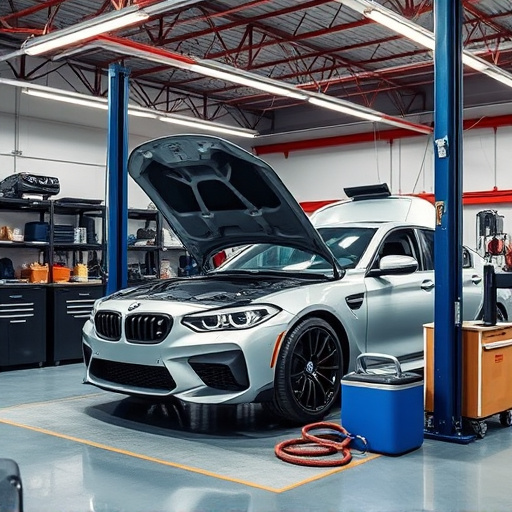
A frame repair certification is a specialized skill set that focuses on the intricate art of restoring vehicle structures to their original integrity and safety standards. This certification involves in-depth training in diagnosing and repairing damage to a car’s framework, which includes the chassis, suspension systems, and other critical components. It equips technicians with the knowledge to handle complex auto collision repairs, ensuring vehicles are structurally sound after an accident.
The benefits of this certification extend beyond individual career advancement. It contributes to enhanced vehicle safety on the road, as certified professionals can accurately assess and rectify damage, preventing future mechanical failures. In the realm of auto bodywork, frame repair certification is a game-changer, fostering trust among car owners who seek reliable and thorough repairs for their damaged vehicles, be it minor fender benders or severe accidents, ensuring each vehicle is returned to its pre-incident condition.
General Auto Repair Licensing: Requirements and Scope of Practice

General Auto Repair Licensing, often a prerequisite for those looking to enter the automotive industry, outlines a set of standards and skills required to perform various repairs. To obtain this license, candidates must typically complete a certified training program offered by accredited institutions or employers. The curriculum covers a broad range of topics, from engine mechanics and electrical systems to collision repair services and auto glass repair. This comprehensive training ensures that technicians possess the knowledge to handle basic to complex automotive issues.
The scope of practice for licensed auto repair professionals includes but is not limited to diagnosing and repairing engines, transmissions, brakes, and suspension systems. They are also authorized to perform essential maintenance tasks and offer advice on vehicle care. However, when it comes to specialized areas like frame repair, which involves the structural integrity of a vehicle, additional certifications might be necessary. These specific qualifications ensure that auto body shops and their technicians can provide expert collision repair services while adhering to industry standards.
Comparing Certifications: Advantages and Considerations for Your Career Path
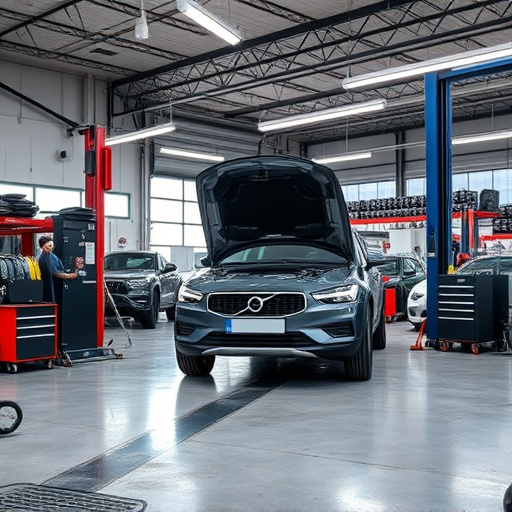
When comparing frame repair certification to general auto repair licensing, understanding the advantages and considerations is crucial for your career path. A frame repair certification focuses specifically on the intricate art of restoring vehicle structures to their original integrity. This specialized skill set is invaluable in ensuring safety and structural soundness, particularly after accidents or damage. It sets certified professionals apart in the automotive repair industry, as they possess in-depth knowledge about the complex mechanisms that hold a vehicle together.
Compared to general auto repair licensing, which covers a broader spectrum of tasks including engine work and auto painting, frame repair certification offers a more niche yet highly sought-after expertise. While general licensing is essential for performing various vehicle repair services, a frame repair certificate demonstrates mastery in a specific area. This can lead to better job prospects and potentially higher earnings for those specializing in this field, especially as the demand for precise and expert frame repairs continues to grow in today’s automotive landscape.
When deciding between frame repair certification and general auto repair licensing, understanding the nuances of each is key. While general licensing opens doors widely, offering a broad scope of work, frame repair certification specializes in crucial structural integrity tasks, enhancing career prospects in specialized shops. Considering your interests and career goals, investing in frame repair certification can prove advantageous in a market that values such specialized skills.
